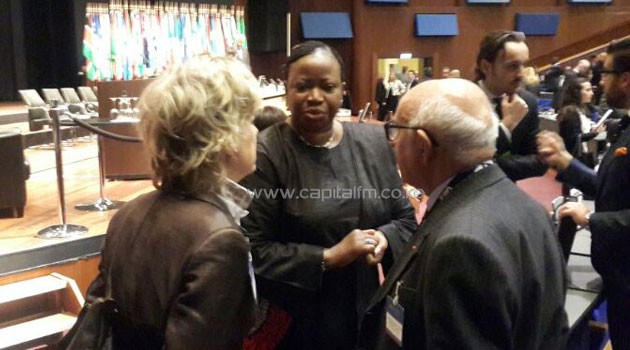
Speaking at a press conference at The Hague on Wednesday, Intelmann said during the ongoing ASP, delegates will discuss the matter but a ruling will not be immediate/CFM
Speaking at a press conference at The Hague on Wednesday, Intelmann said during the ongoing ASP, delegates will discuss the matter but a ruling will not be immediate.
“Amendments to the Rome Statute take some time. They have to be discussed and examined thoroughly. The amendment has to go through the UN Security Council; all that would take some time,” she indicated.
She explained that the rules of procedure such as physical presence of the accused enter into force immediately, although there are instances like in the Kenyan situation where Deputy President William Ruto makes requests to skip sittings on a case-by-case basis.
However to amend the Rome Statute, the decisions are technical and have to undergo thorough scrutiny which also encompasses the expertise of the International Criminal Court (ICC) judges.
In the case of amending the Rome Statute, member states have to vote although they always try to reach a consensus; “ (The) possibility is always to vote, but they have been reluctant to vote but look for consensus so that none of the amendments can contradict the Rome Statute.”
While acknowledging complaints put forth by the AU, Intelmann said the ASP has an open mind and has dedicated a special session to the AU Legal Council to air the grievances it has with the ICC.
She said the issues raised by the AU have been duly taken into account by the ICC and the ASP, which is why it had granted African Union member states a special session to discuss matters in question on Thursday.
At the start of the eight-day conference on Wednesday morning, ICC President Sang-Hyung Song said the ASP had dedicated a special session to AU which has 34 member states at the ICC to air its complaints with the court.
The AU has complained that the ICC has been targeting African states amidst accusations of over stepping the sovereignty of countries like Kenya which has its President Uhuru Kenyatta and his deputy facing charges before the court while in office.
They have argued that having them being tried by the court is impacting negatively on peace and security in the country and the region.
Kenya has also raised questions over the manner in which the Office of The Prosecutor conducted investigations in Kenya, accusing it of pulling a political stance by parading witnesses with credibility gaps.
According to Intelmann, although the Rome Statute states that the accused person has to be present during trial, the court has been ‘mindful of the situation outside court’ and excused Ruto in extra ordinary circumstances.
She said the ASP will consider all the complains that the AU will raise to see how they can resolve them in view of further interpretations of what it means to have the accused present in court.
“Article 63 of the Rome Statute is clear that the accused has to be present, but what does it mean via modern means of communication or any other way? Different wordings have been proposed,” she explained.
Foreign Affairs Minister Amina Mohamed on Wednesday afternoon joined Attorney General Githu Muigai and Director of Public Prosecutions Keriako Tobiko in representing the Government of Kenya at the conference.








































